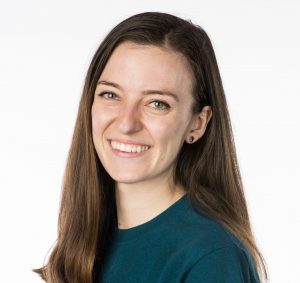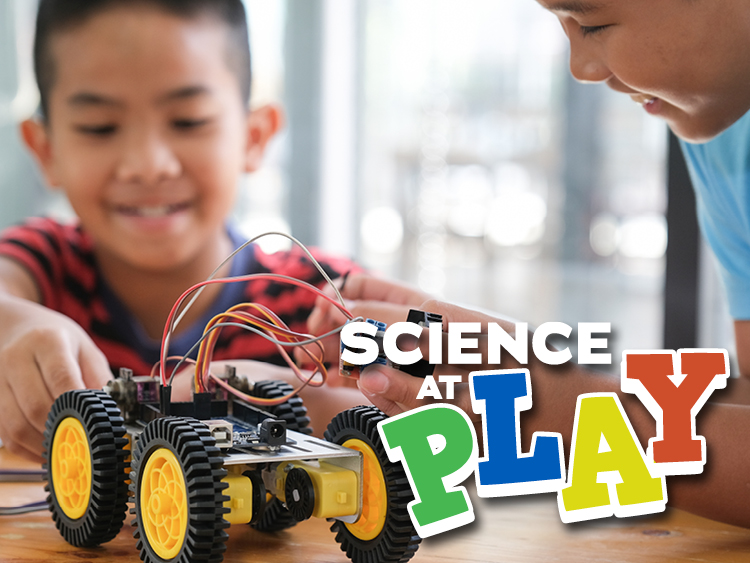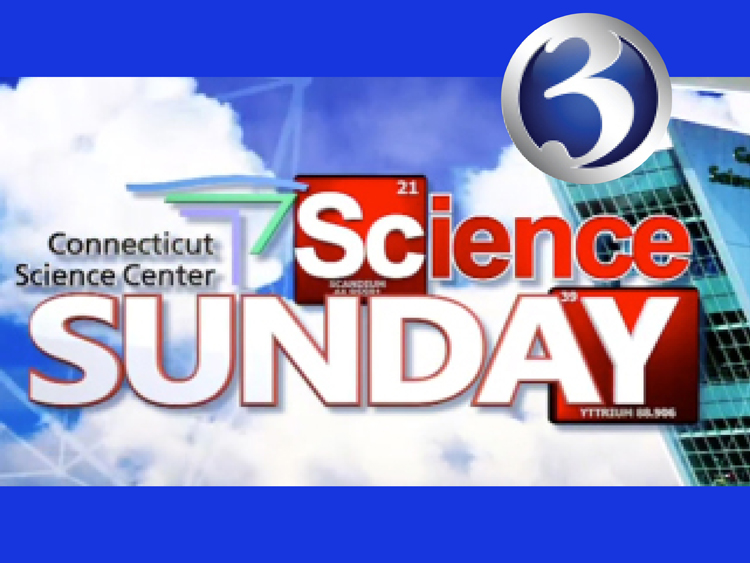This past weekend, we opened our brand-new traveling exhibit, Mazes & Brain Games, at the Connecticut Science Center. To mark the occasion, we decided to share with you some fun activities to show how your brain can be tricked with your own vision.
Our first test uses an old whirligig fidget toy with a different picture on each side of a piece of paper. When we spin that piece of paper using the stick attached to it, it looks like one image rather than two separate ones. This is because when your retina transmits an image to your brain, it lingers for about a tenth of a second. So, if we spin our toy faster than that tenth of a second, the two images begin to look like one. This is called persistence of vision.
Another way our eyes can interpret the world differently, and possibly trick our brains, is through refraction. When light passes through different mediums—such as water to air or glass to air—through a curved surface, you will notice some really cool things can happen. Try this at home: take a glass cup and fill it up with water. Now put your straw into the water while looking at the side of the cup. What do you see? Does the straw look magnified? This is refraction. Click on the link below to see Mark and Aoife put refraction into action.
The last activity is one that you should definitely try at home. You can either take a piece of paper and roll it up or use an empty paper towel roll for this experiment. While keeping both eyes open, place the paper roll in front of one eye and your hand in front of your other eye. What do you notice? While we don’t want to give away exactly what you are going to see on your hand, we can explain how it happens. Each of your eyes is seeing a different image, but your brain is combining those two images into one.
https://www.wfsb.com/weather/science_sunday/
To put your brain to the ultimate test, come explore our new traveling exhibit, Mazes & Brain Games. For more information, visit our website at CTScienceCenter.org.

Mark Dixon is a meteorologist on WFSB Channel 3 Eyewitness News and a host of the weekly Science Sunday segments with the Connecticut Science Center. He has been nominated for several Emmy awards for weather anchoring and has won awards from the Connecticut Associated Press Broadcaster’s Association and the American Meteorological society.

Aoife Ryle is a STEM Educator at the Connecticut Science Center. In addition to working with school groups, she works with our Teen Program, Overnights department, and shoots weekly science segments for WFSB. She has a degree in Bioengineering from the University of Maine and has a personal interest in the life sciences and engineering which makes bioengineering a perfect crossover.


